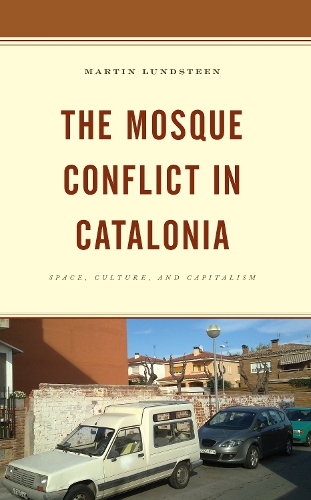
The Mosque Conflict in Catalonia: Space, Culture, and Capitalism
(Hardback)
Available Formats
Publishing Details
The Mosque Conflict in Catalonia: Space, Culture, and Capitalism
By (Author) Martin Lundsteen
Bloomsbury Publishing PLC
Lexington Books/Fortress Academic
3rd October 2022
United States
Classifications
Professional and Scholarly
Non Fiction
Human geography
Social groups: religious groups and communities
297.354672
Physical Properties
Hardback
134
Width 159mm, Height 239mm, Spine 17mm
376g
Description
In The Mosque Conflict in Catalonia: Space, Culture, and Capitalism, Martin Lundsteen examines two paradigms around mosque conflictsone of an analytical nature and the other of a political-technical nature. Lundsteen argues that both paradigms interpret conflicts culturally, as originating primarily in the symbolic realm. Though racism and xenophobia are certainly at the core of the issue, Lundsteen shows through the study of the conflict surrounding the mosque project in Premi de Mar (Barcelona) that other dimensions of utmost importance lurk behind these interpretations. This book constitutes an anthropological approach to the intersection of local-global processes of contemporary capitalism and emphasizes the understudied socio-spatial dimension of these conflicts.
Reviews
Drawing on a controversy over a mosque in a small town near Barcelona, Martin Lundsteen deftly weaves together analysis of class, place, space, and racism as they play into one another in the context of urban transformation shaped by shifts in the local and geopolitical landscape.
In this enlightening book, Martin Lundsteen masterfully unveils the political and economic fabric of an apparent "cultural conflict." The Mosque Conflict carefully traces the connections between spatial valorization and the devaluation of migrant labor, pointing to processes of contemporary capitalism that are hidden in plain sight.
Through a historical-ethnographic reconstruction of an infamous mosque conflict in Catalonia, Lundsteen unravels the political and economic logics that underpin opposition to mosque siting in Spain and Europe more broadly. As Lundsteen compellingly argues, class contradictions, capital accumulation and real estate expansion are key drivers of these conflicts, yet these processes tend to get buried under media and expert narratives that present such conflicts as the consequence of cultural incompatibility and religious intolerance. Showing how xenophobic discourses and far-right political parties feed off of such culturalist explanations, The Mosque Conflictin Catalonia makes clear that we evacuate political economy at our own peril.
Author Bio
Martin Lundsteen is Carlsberg Foundation Visiting Fellow at the Centre for Criminology, University of Barcelona and teacher at the University of Girona.
